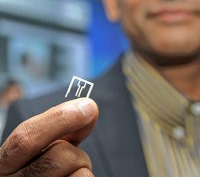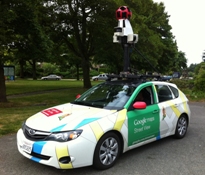 The Aereo case was argued this morning, and before Paul Clement could even get rolling on his introduction on behalf of the broadcaster plaintiffs, Justice Sotomayor hit him with this:
The Aereo case was argued this morning, and before Paul Clement could even get rolling on his introduction on behalf of the broadcaster plaintiffs, Justice Sotomayor hit him with this:
JUSTICE SOTOMAYOR: Why aren’t [companies like Aereo] cable companies?
MR. CLEMENT: They’re not –
JUSTICE SOTOMAYOR: I’m looking at the — everybody’s been arguing this case as if for sure they’re not. But I look at the definition of a cable company, and it seems to fit.
I’ve been wondering this too. The question presented in Aereo is whether Aereo is engaged in a “public performance” when its servers automatically save and transmit recorded broadcast television programs to subscribers at their request, or whether that activity is properly understood as only the users’ activity. (Scotusblog has a good backgrounder on the case.)
In debating that issue, both the broadcasters and Aereo have at separate points analogized Aereo to a cable system — the broadcasters in the course of claiming that Congress intended to define what Aereo is doing as a “public performance,” just as it did with cable retransmission; Aereo in claiming that it is engaged in disruptive innovation, just as the early cable operators did. But that raises a somewhat different question: why isn’t Aereo subject to Section 111 of the Copyright Act? If it is, then the Court could avoid the entire debate over public performances; the text of Section 111 provides a direct route to liability for certain retransmissions without even mentioning the words “public performance.” And yet, as far as I can tell, it has not been raised by the broadcaster plaintiffs as a basis for a preliminary injunction.
 I am pleased to announce that our guest blogger for May will be Ric Gass ’70, of the law firm of Gass Weber Mullins LLC. Ric is an experienced trial lawyer whose practice concentrates on cases involving catastrophic injuries, products liability, and bad faith.
I am pleased to announce that our guest blogger for May will be Ric Gass ’70, of the law firm of Gass Weber Mullins LLC. Ric is an experienced trial lawyer whose practice concentrates on cases involving catastrophic injuries, products liability, and bad faith.
 The Aereo case was argued this morning, and before Paul Clement could even get rolling on his introduction on behalf of the broadcaster plaintiffs, Justice Sotomayor hit him with this:
The Aereo case was argued this morning, and before Paul Clement could even get rolling on his introduction on behalf of the broadcaster plaintiffs, Justice Sotomayor hit him with this: I
I